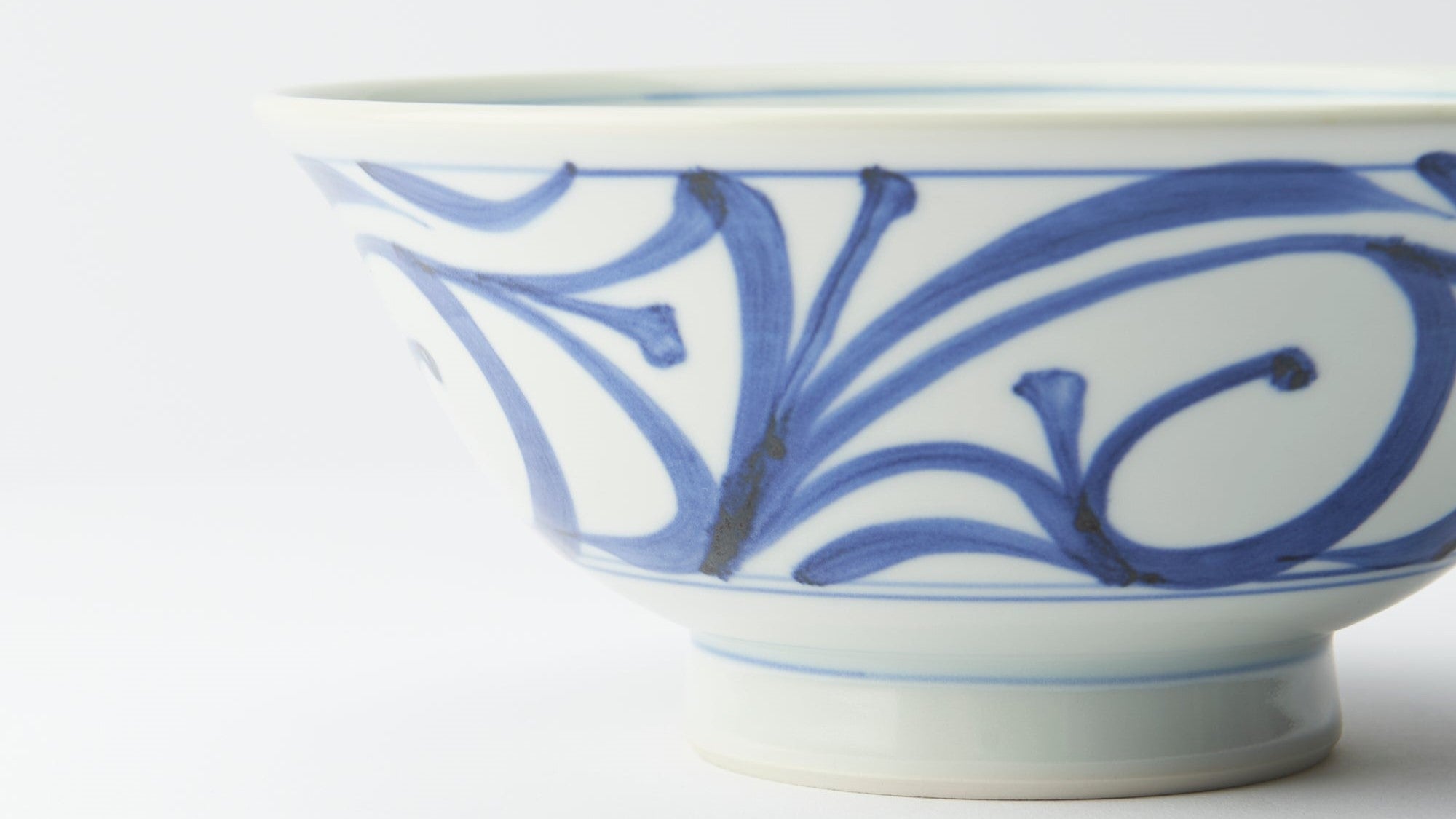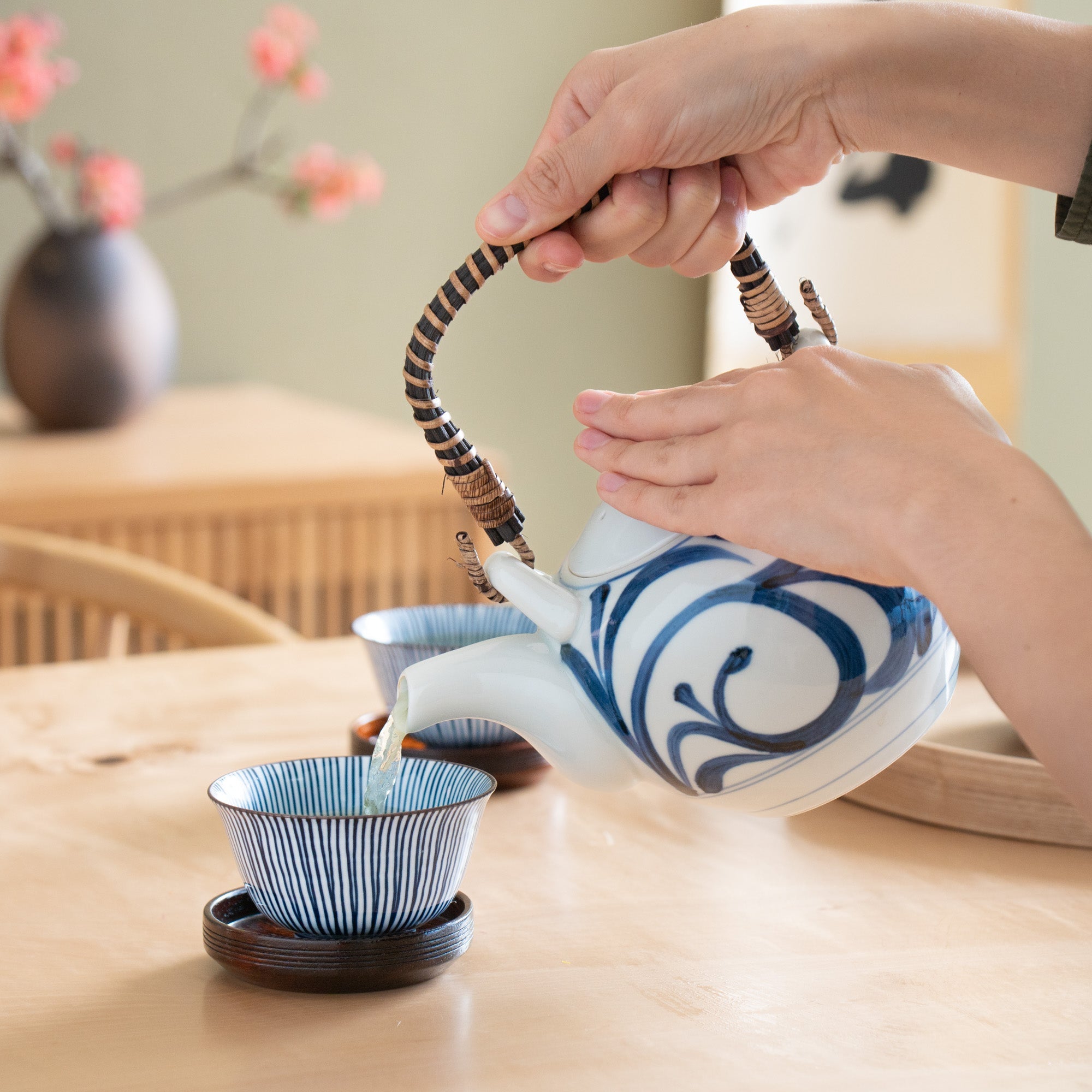
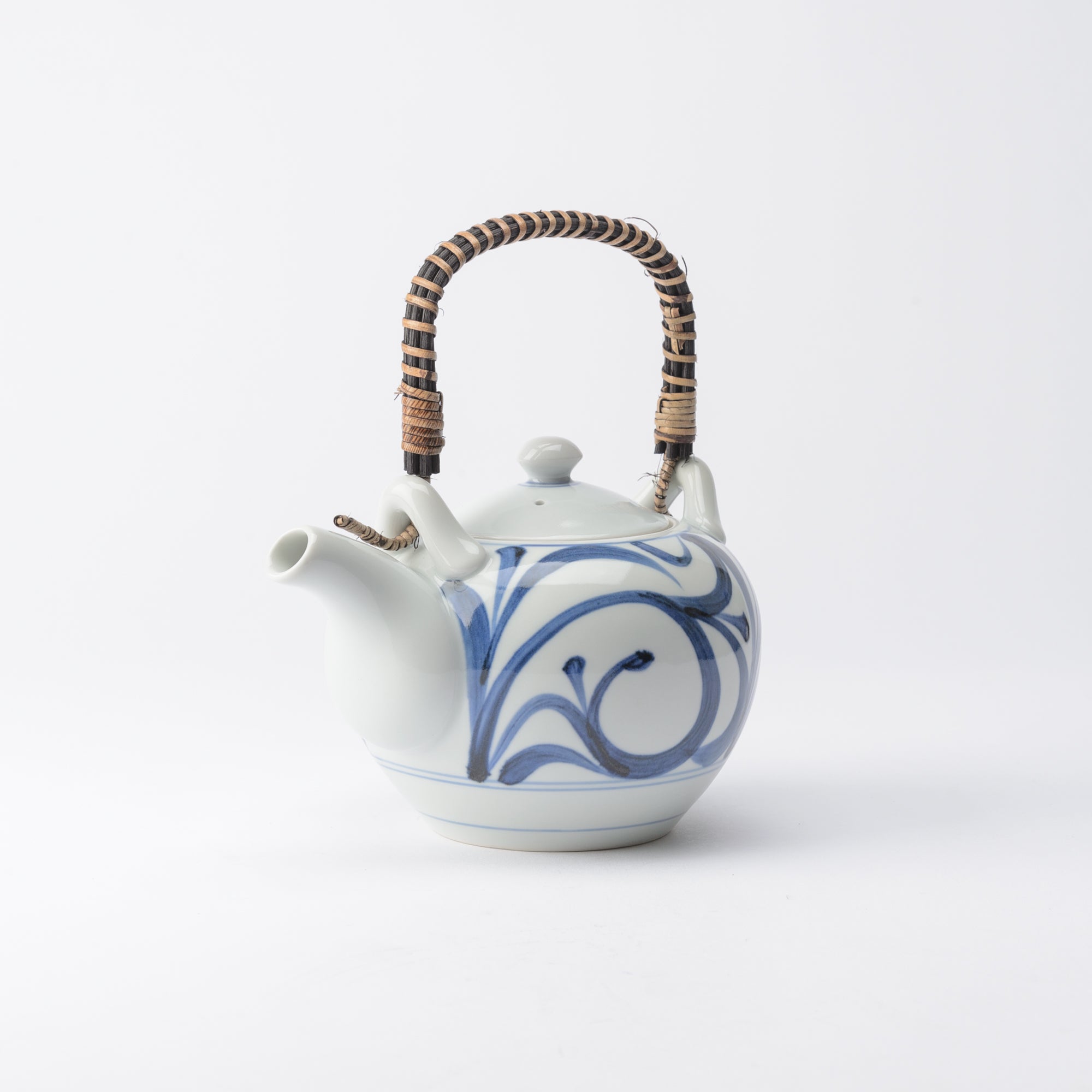
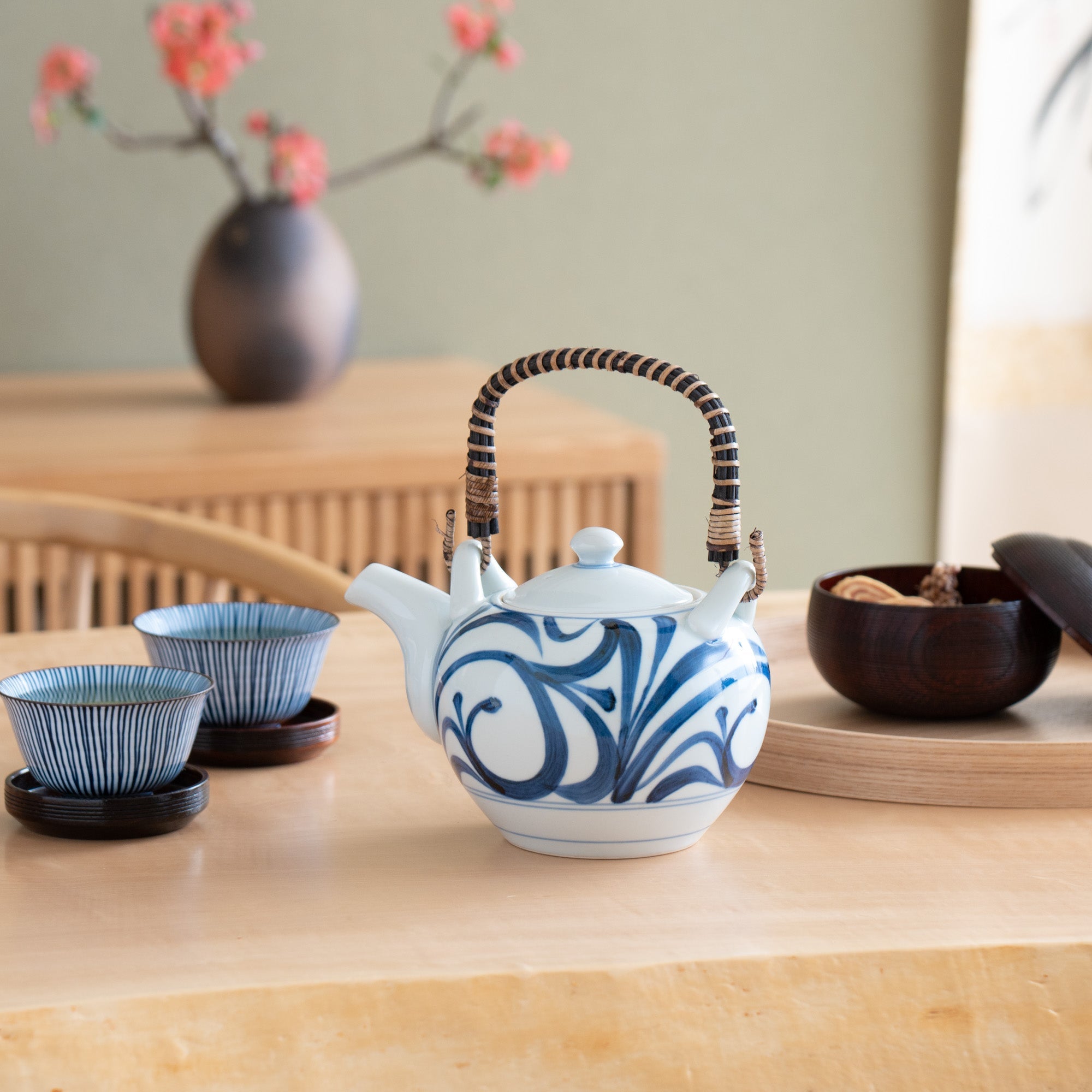
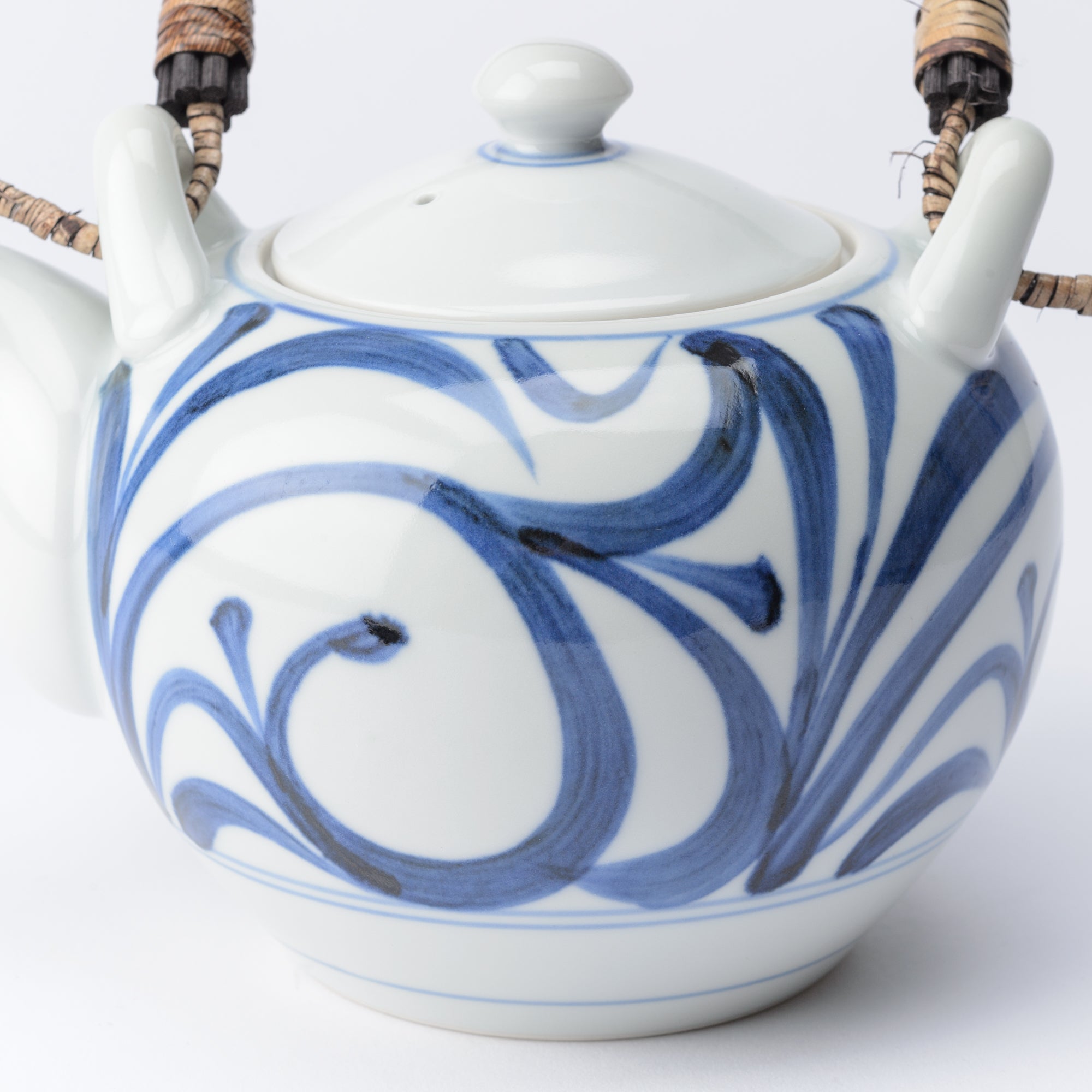
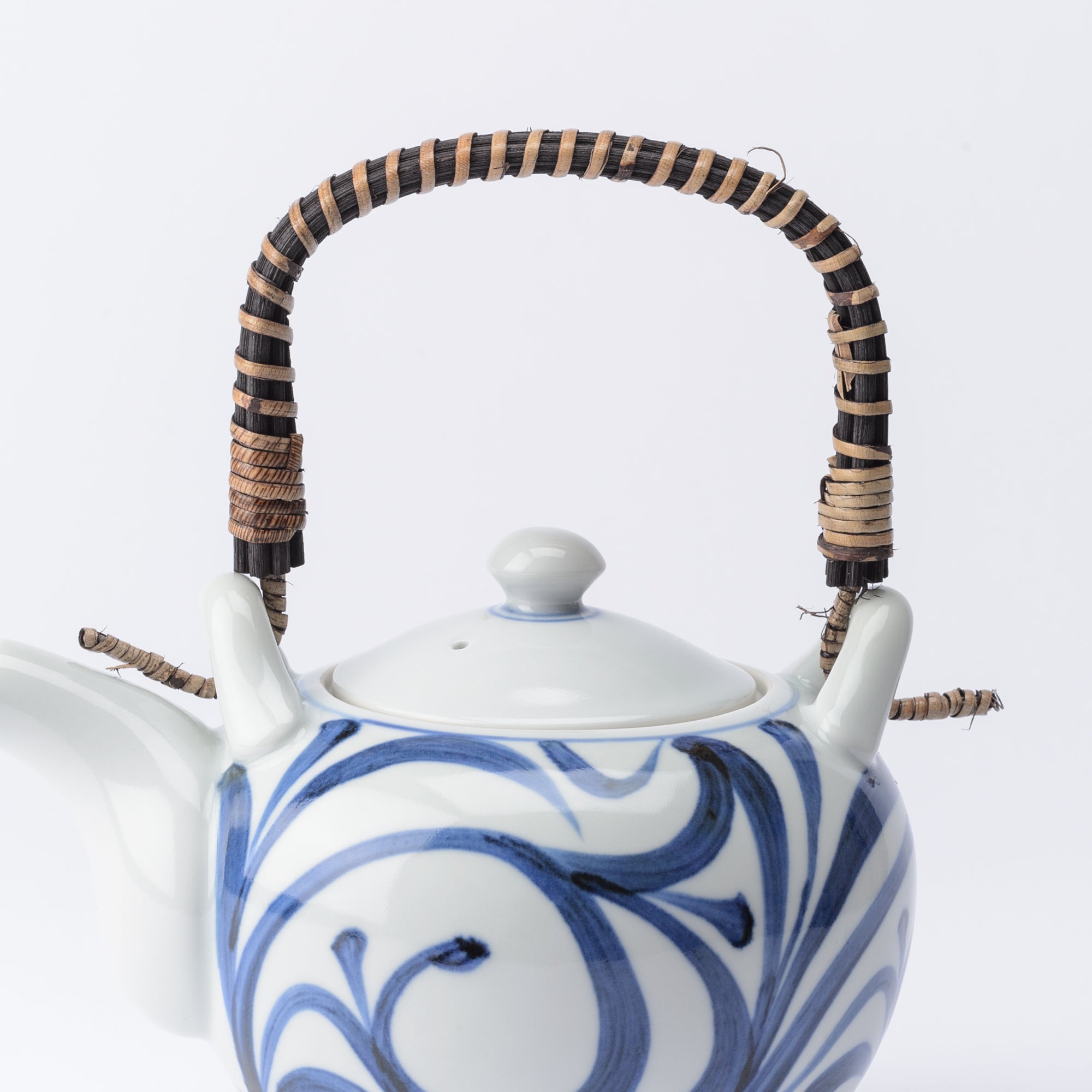
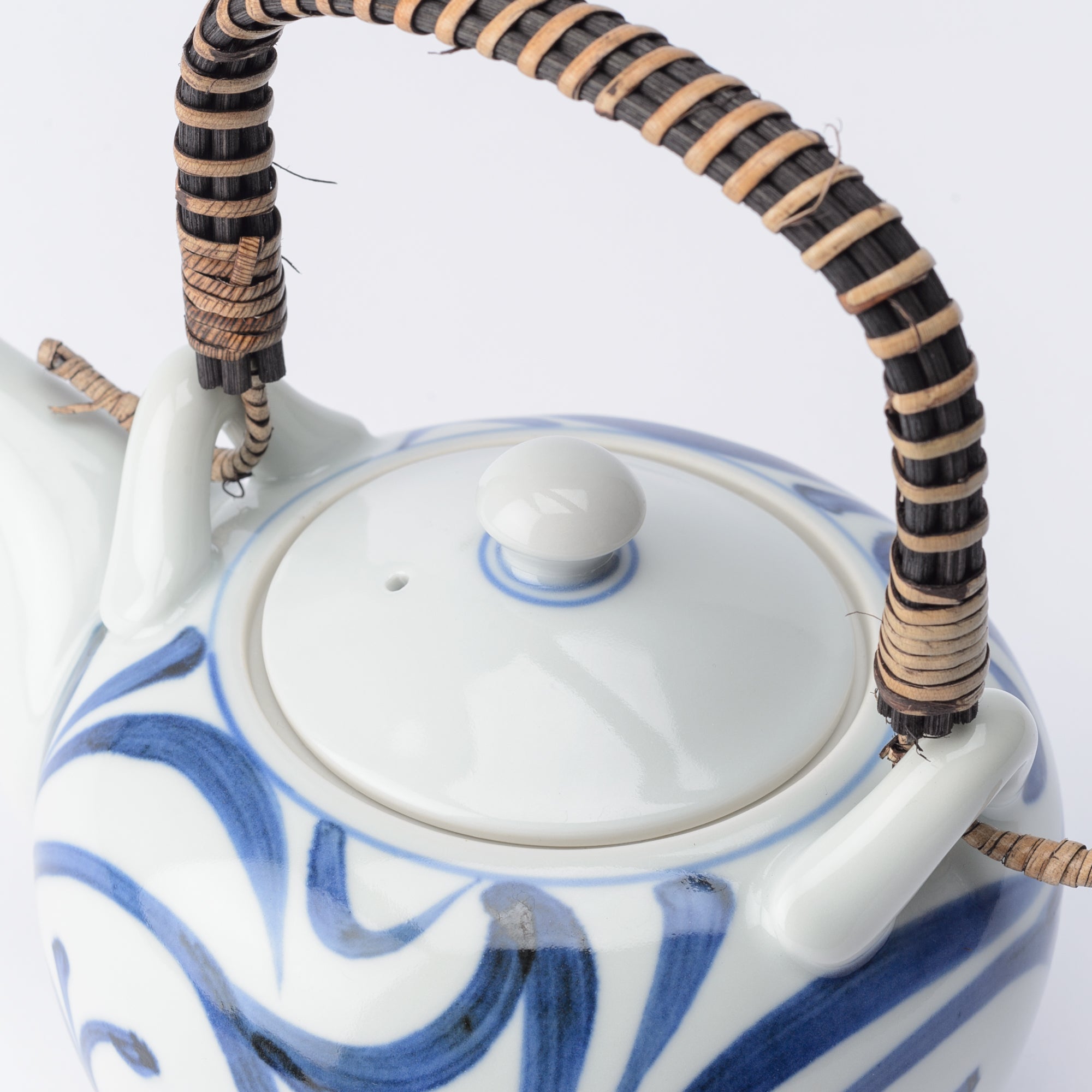
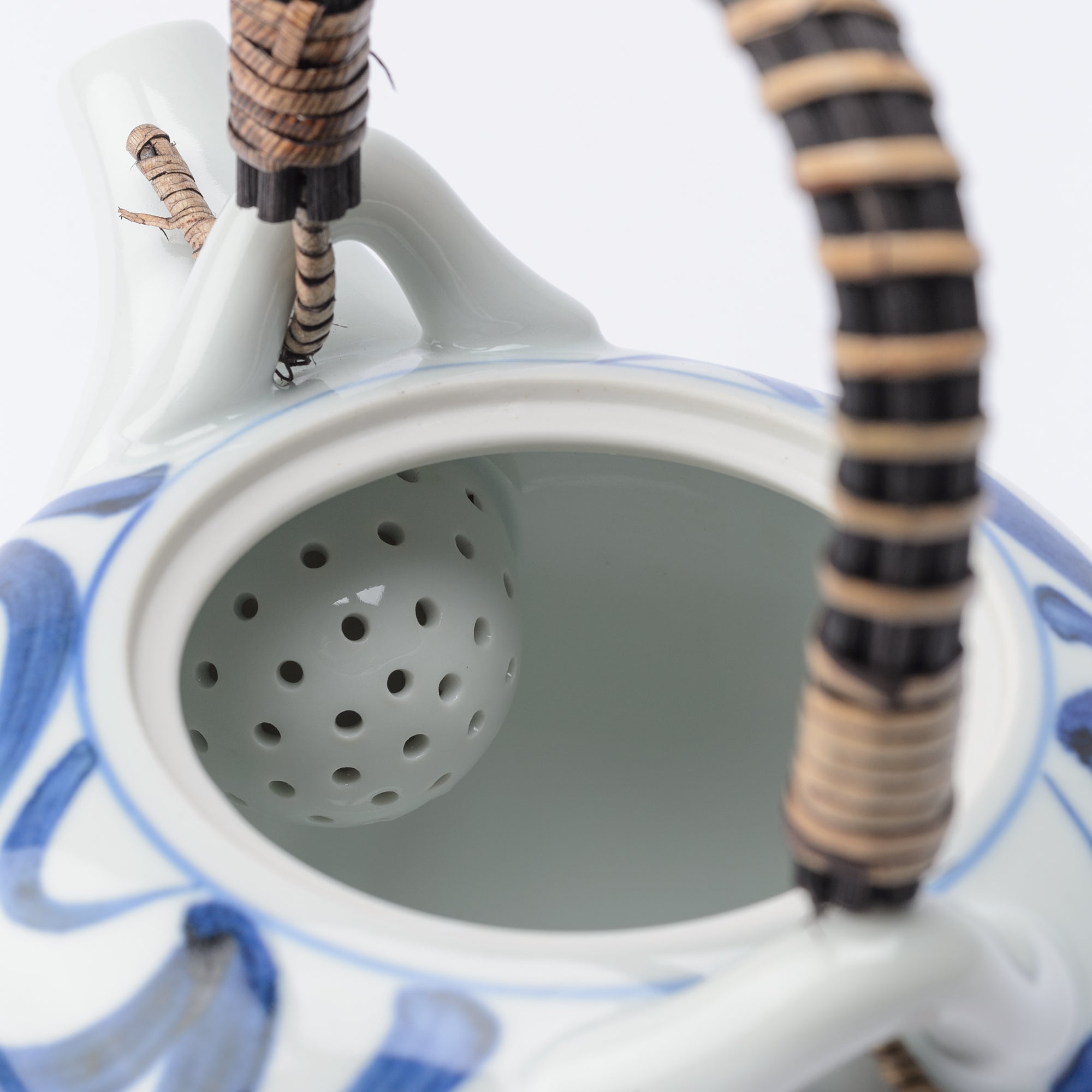
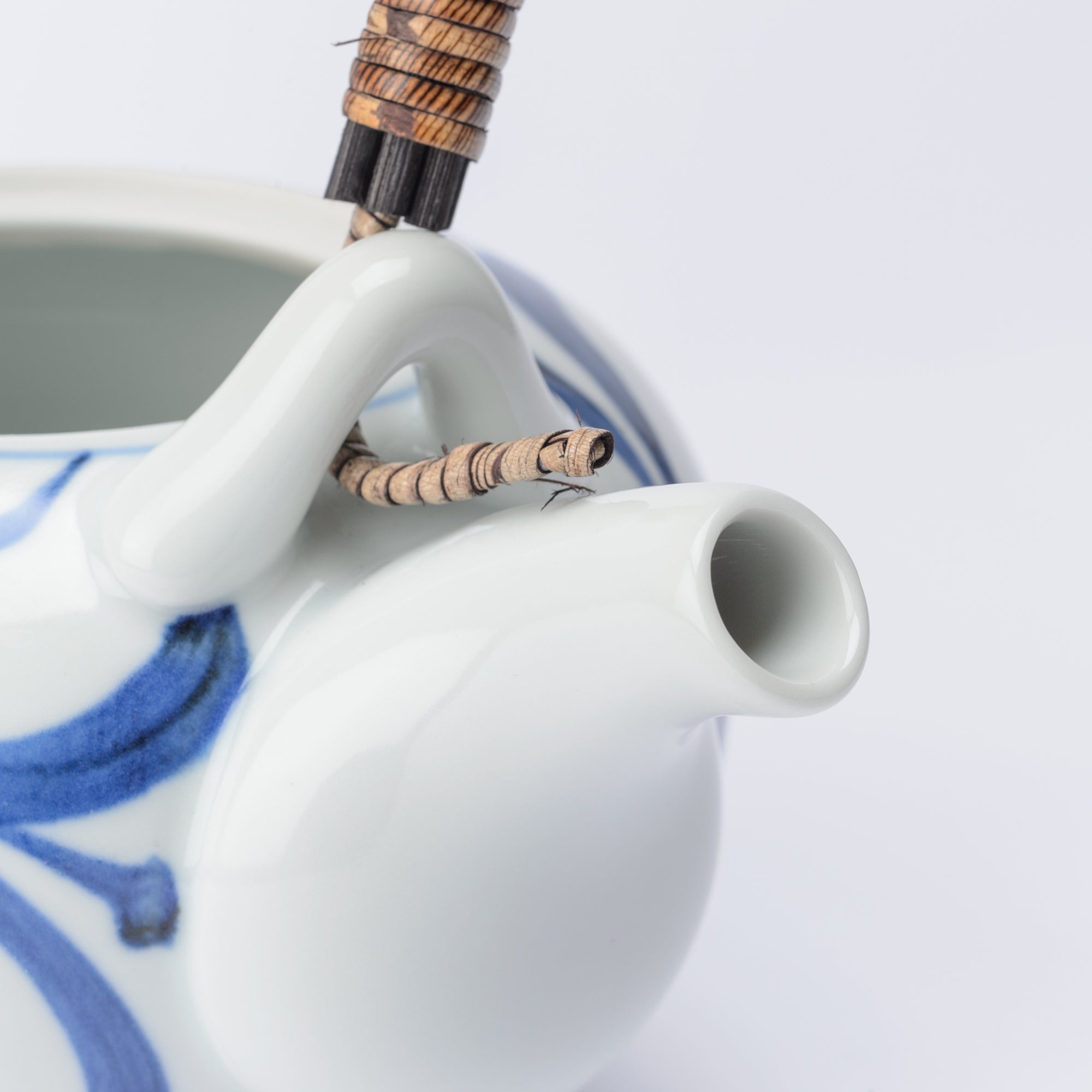
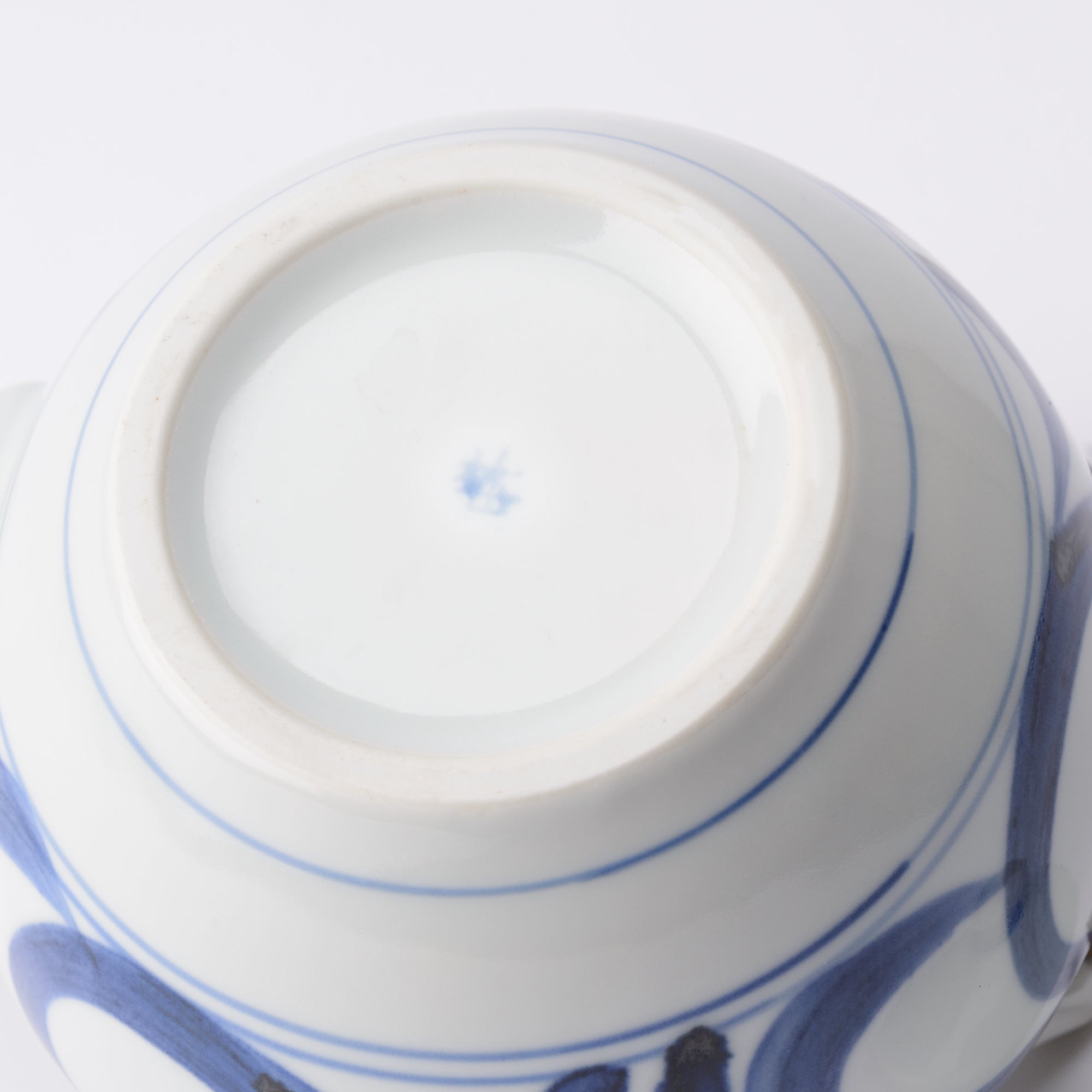
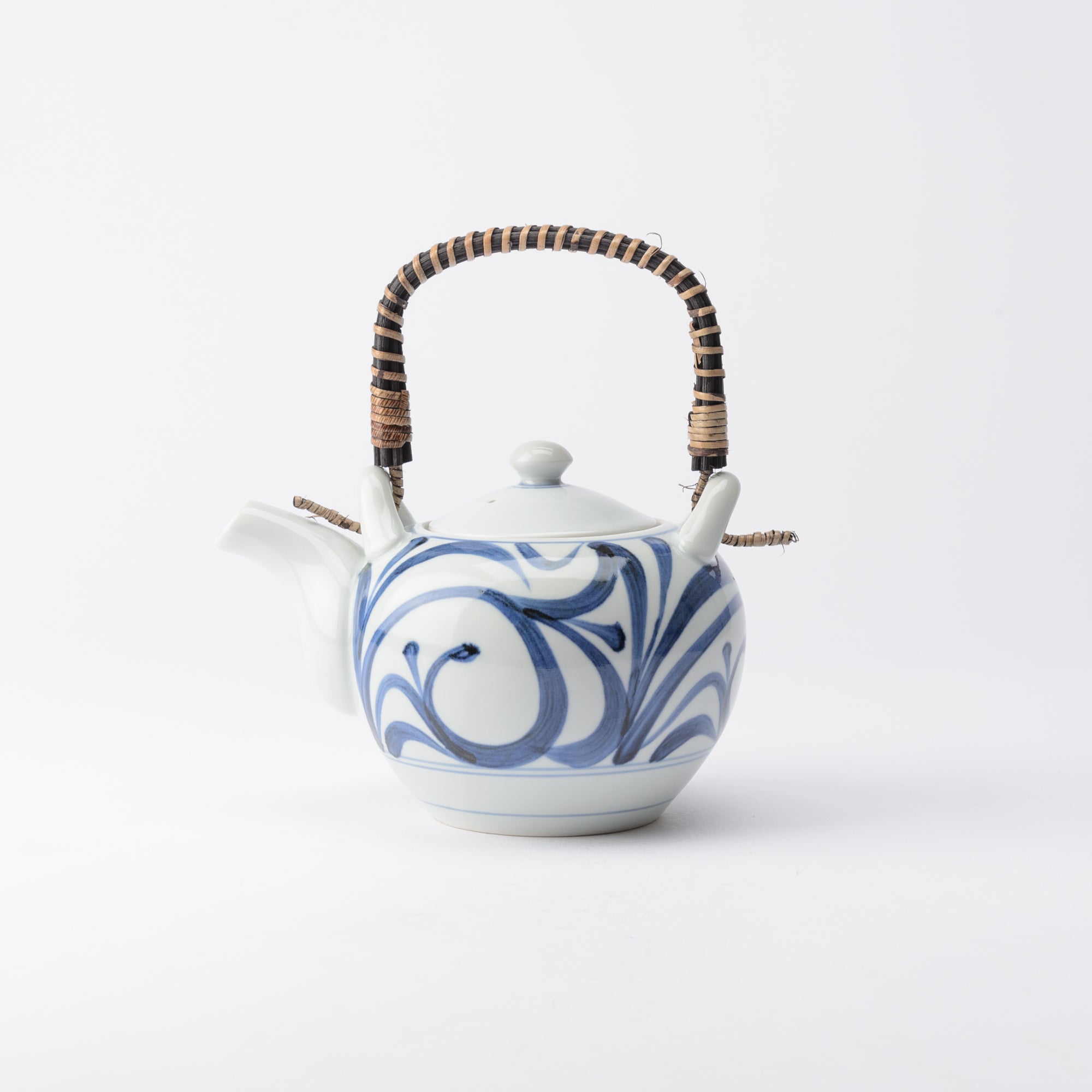
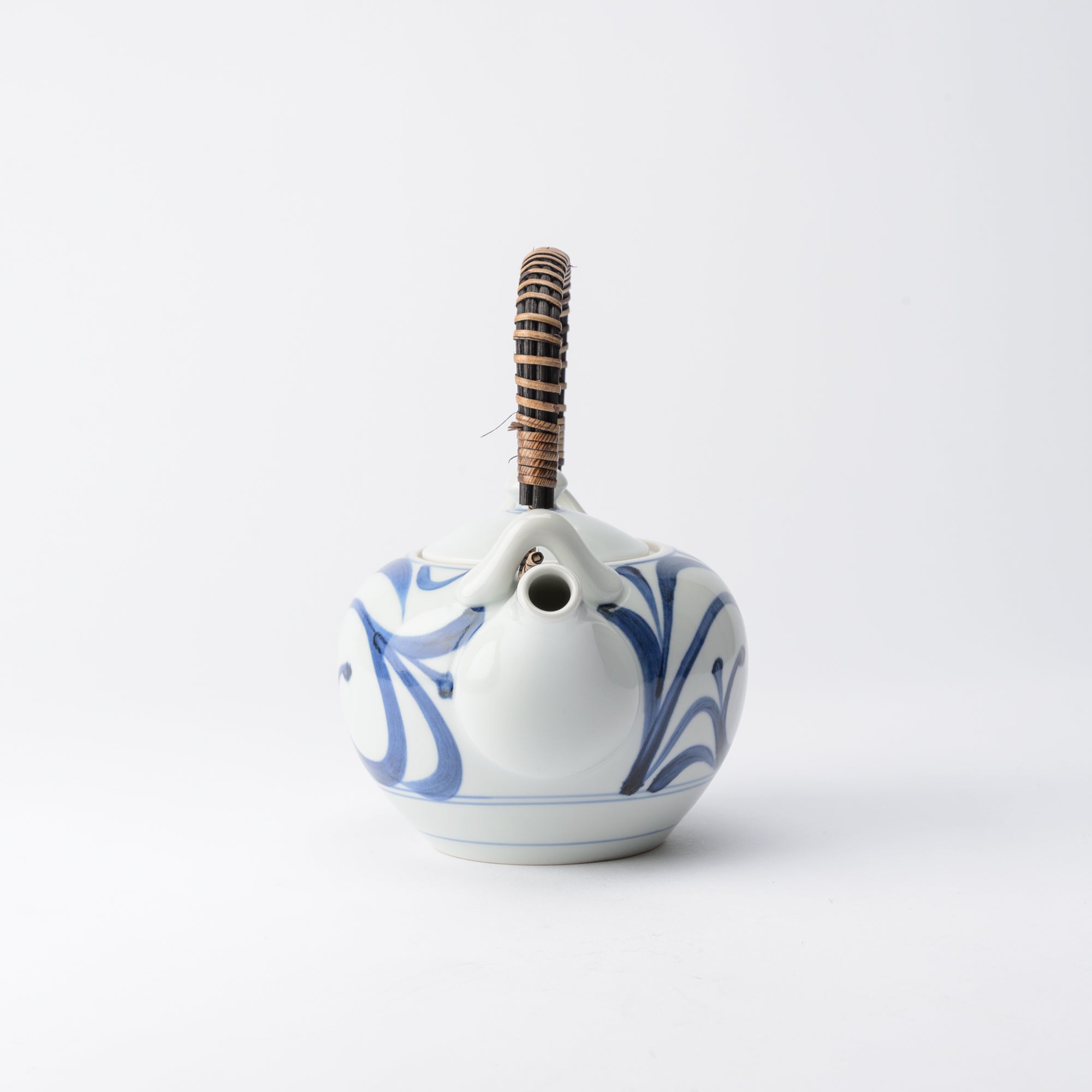
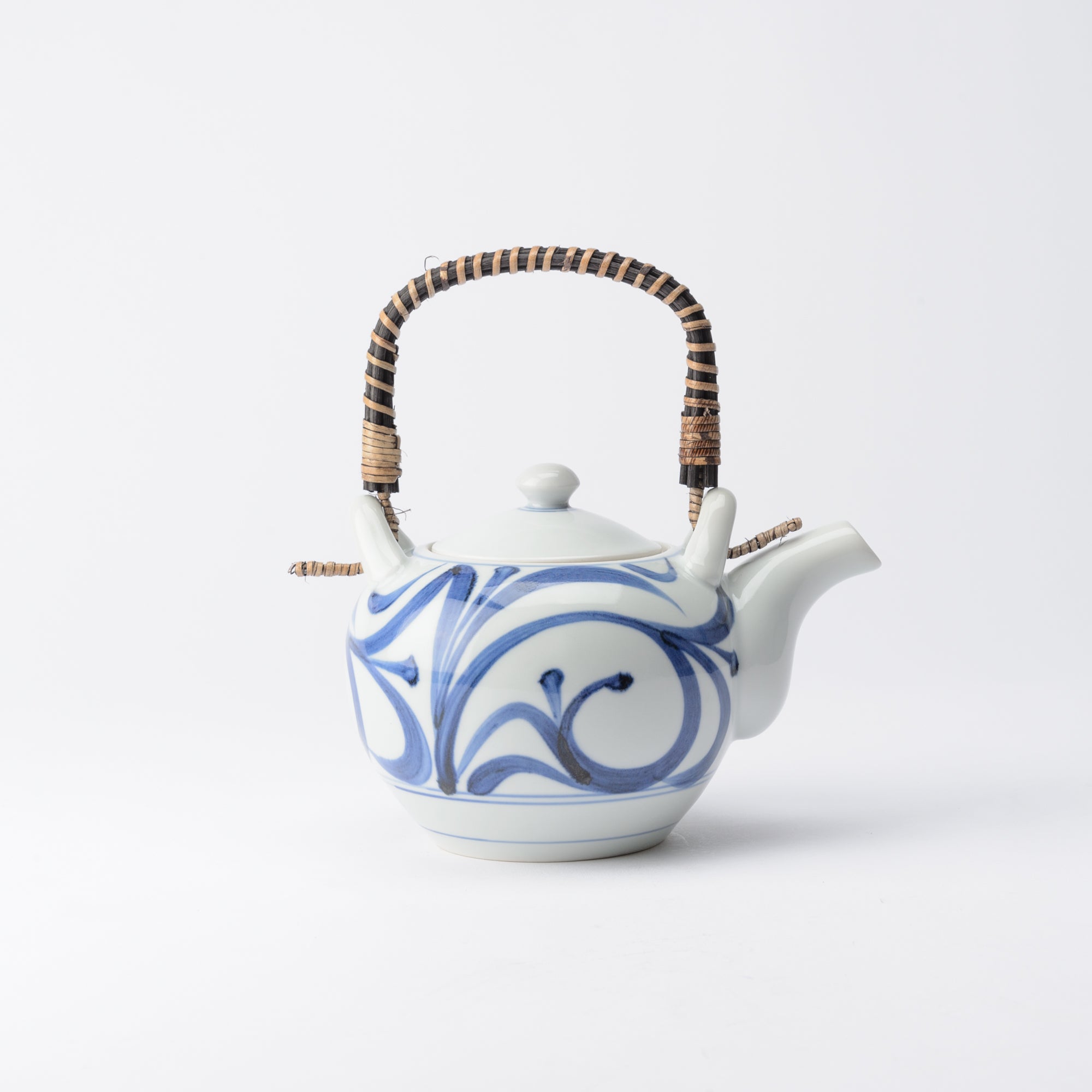
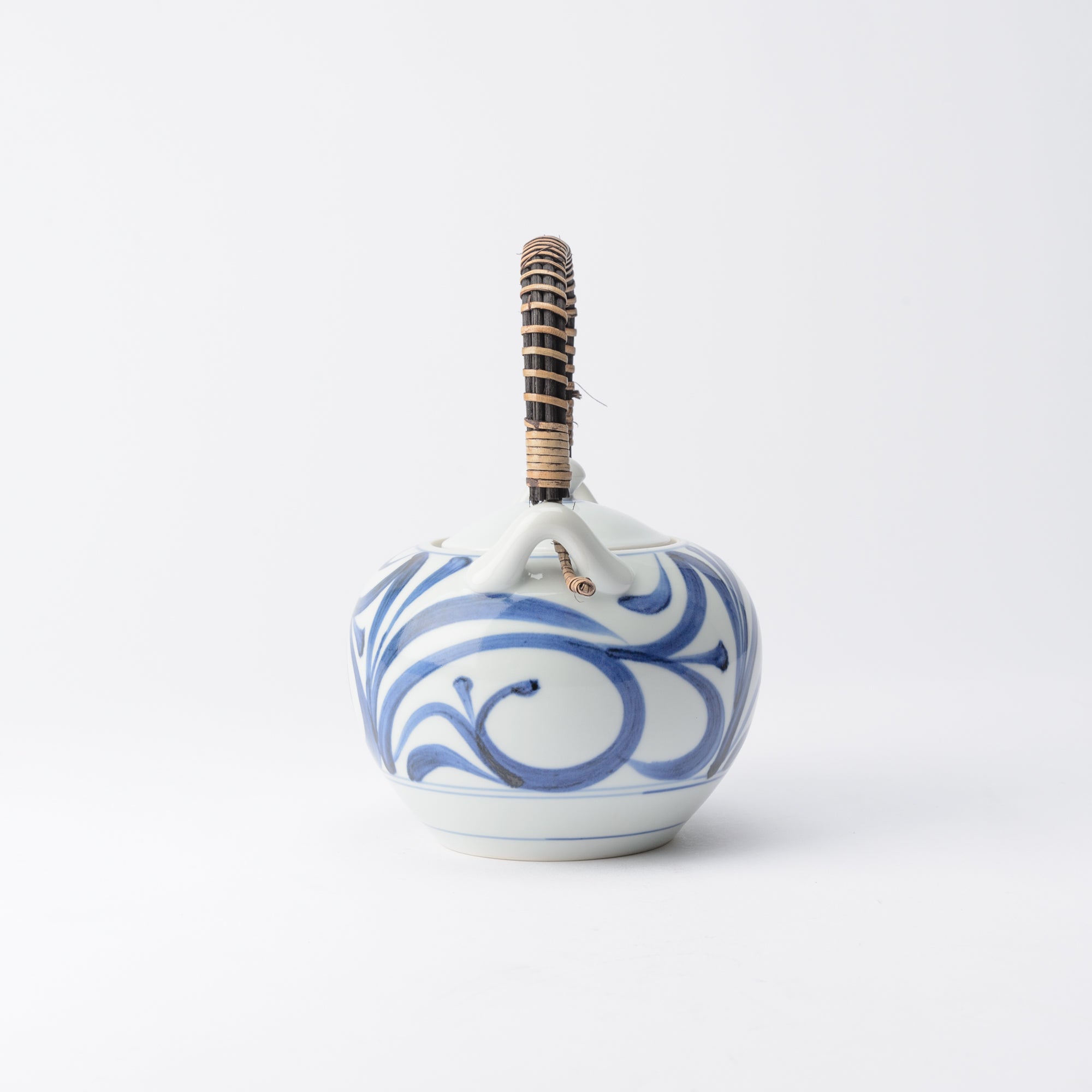
Arabesque Japanese Teapot
Estimated Shipping Widget will be displayed here!
This ceramic Japanese blue and white teapot showcases a graceful arabesque pattern, a signature motif of Baizan Kiln. The indigo hue adds a refreshing touch, while the hand-painted design brings a sense of warmth and artistry inspired by nature.
Inside, the teapot features a built-in sasame tea strainer, allowing tea leaves to circulate freely for a richer, more fragrant brew. This teapot is perfect for sharing tea with family and guests on special occasions and makes a thoughtful gift for tea enthusiasts.
DETAILS
| Quantity | 1 |
| Size |
13 cm (5.1 in) without spout, 18 cm (7.1 in) with spout |
| Capacity | 900 ml (30.4 fl oz) |
| Material | Porcelain |
| Microwave | No |
| Dishwasher | No |
Maker / Brand
Baizan Kiln, the oldest existing kiln in Tobe City, Ehime Prefecture, Japan, is cherished for its creations featuring simple yet dynamic brushstrokes and a sturdy, robust form. Its warm white porcelain pieces are adorned with deep indigo and colorful patterns, and their thick, solid shapes evoke a sense of unpretentious, wholesome beauty. In 1976, Baizan Kiln was officially recognized as a traditional craft maker by the Ministry of Economy, Trade, and Industry.
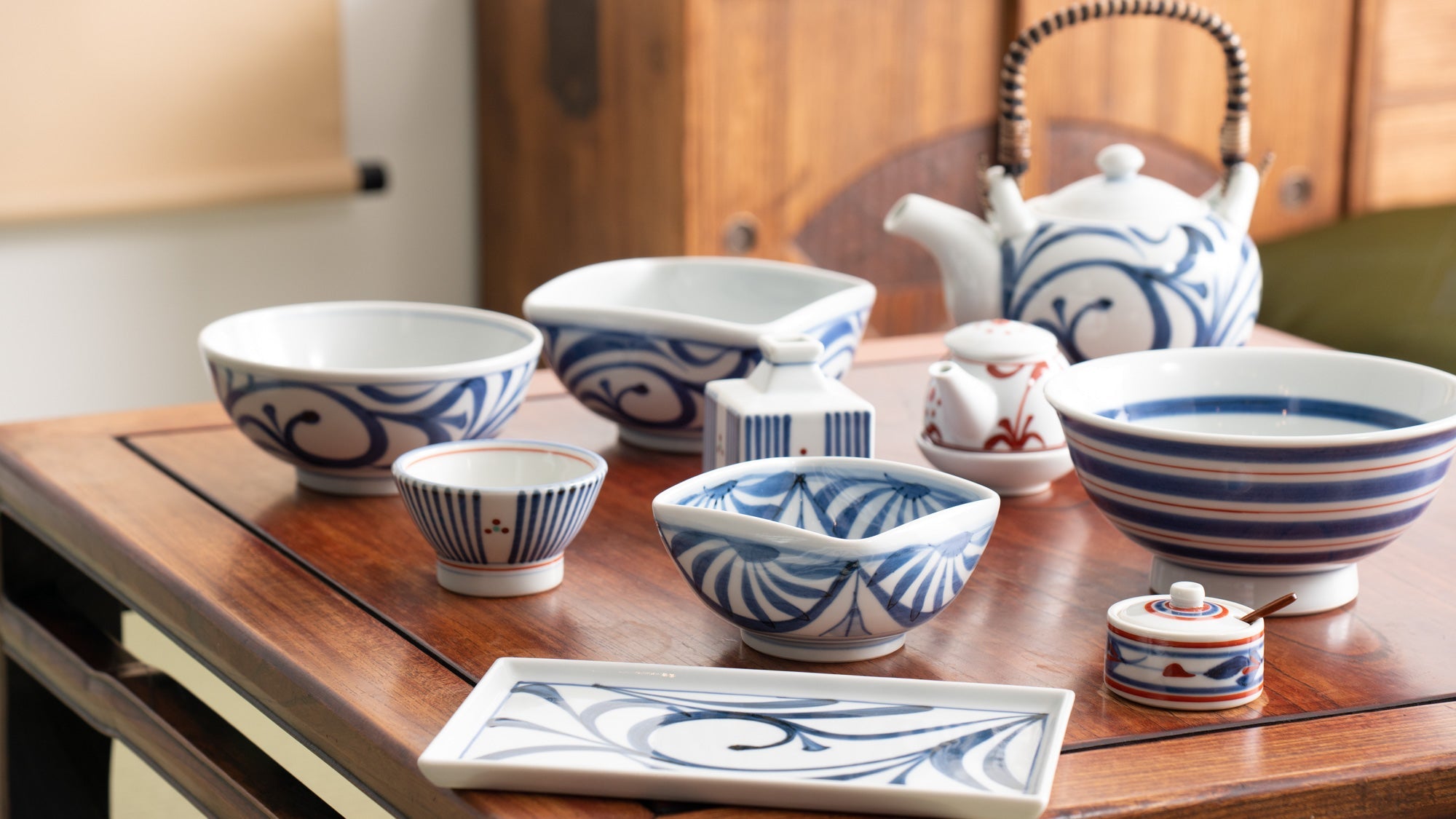
Crafts
Tobe ware is porcelain produced in the Tobe region of Ehime Prefecture, located in the northwest of Shikoku Island. The white porcelain, with its beautiful, slightly bluish hue from the iron content, continues to be highly valued and loved. Tobe ware maintains a strong respect for traditional handicraft techniques, even amidst modernization.
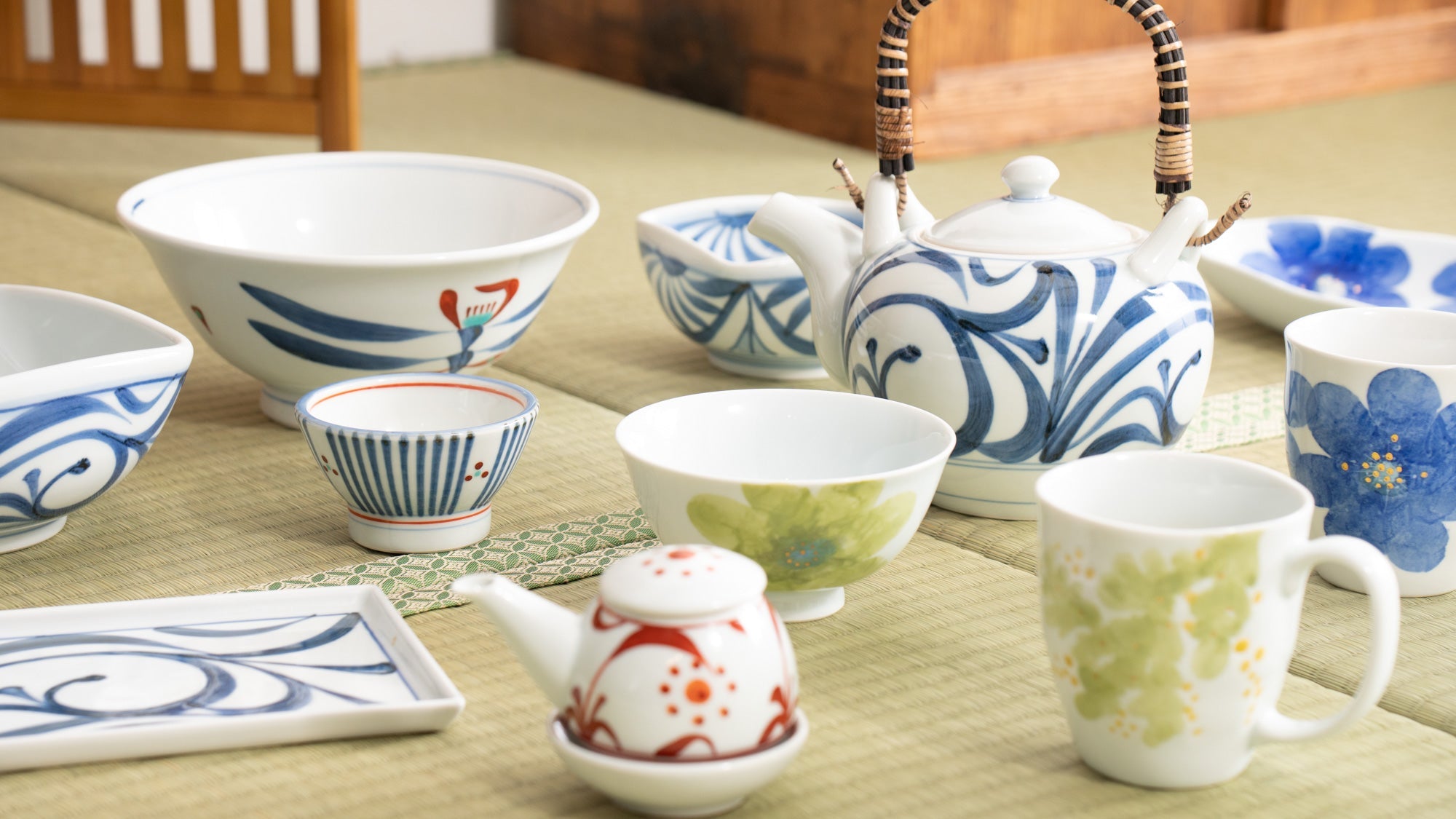
Choose options













Japanese Teapots
You’re sure to find a Japanese teapot that warms your heart among our diverse range of styles—whether you’re looking for a ceramic teapot made from porcelain or stoneware, or a classic cast iron tea kettle. No matter what type of tea you prefer, create an authentic Japanese tea experience with a teapot that stands out with our range of both classic and unique shapes, colors, and intricate designs.
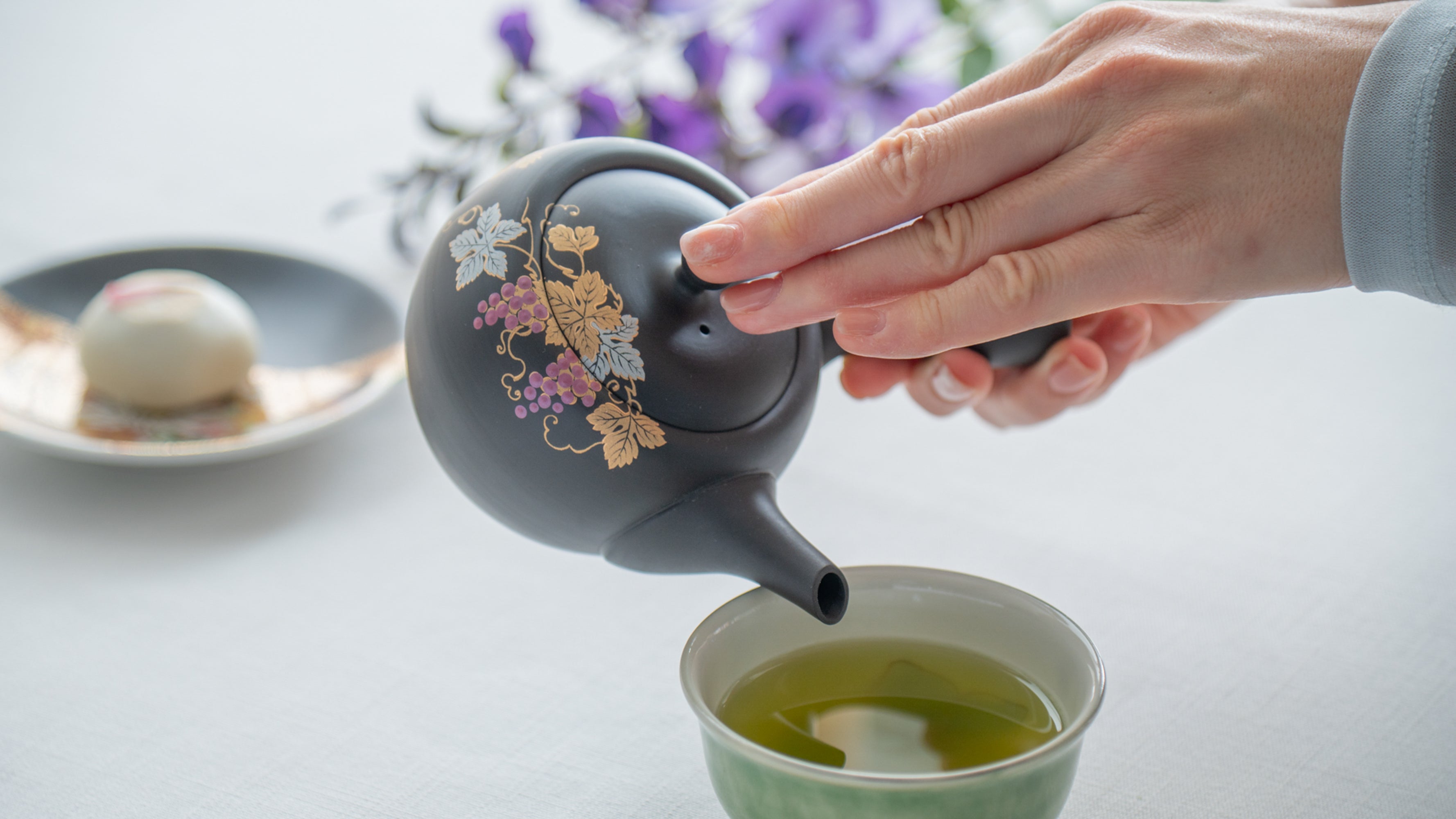
Karakusa: Arabesques
Celebrate the beauty of tradition with our karakusa arabesque pattern collection. Featuring intricate swirling vines symbolizing growth and longevity, these handcrafted items bring a touch of Japanese heritage to your everyday life. Perfect for adding charm and meaning to your table and home.
